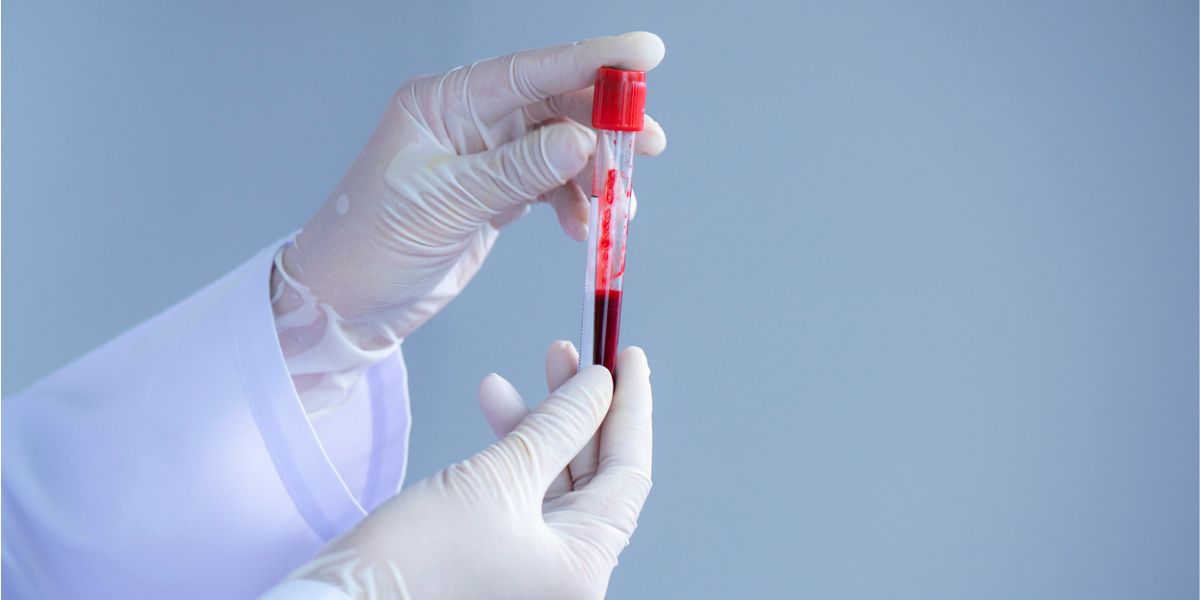The woman was known to have O+ blood, but doctors discovered that none of the available units of this most common type were compatible with her.
Published Jul 31, 2025 | 9:55 AM ⚊ Updated Jul 31, 2025 | 9:56 AM

Blood group. Representative Image. (iStock)
Synopsis: Scientists have discovered a very rare blood group after doctors failed to find blood units compatible with a Karnataka woman. This newly discovered blood group antigen has been named CRIB, after the Cromer blood group system and its origin, Bengaluru in India.
A woman hospitalised for heart surgery in the Kolar district of Karnataka has led Indian scientists to a breakthrough that has never been reported anywhere else in the world.
What began as a usual blood typing quickly escalated into a puzzling blood mismatch mystery. The woman was known to have O+ blood, but doctors discovered that none of the available units of this most common type were compatible with her.
The case was escalated to the Rotary Bangalore TTK Blood Centre, where ten months of testing and collaboration with international labs revealed the presence of a previously unidentified human blood group. This newly discovered blood group antigen has been named CRIB, after the Cromer blood group system and its origin, Bengaluru in India.
The finding was formally announced at the 35th Regional Congress of the International Society of Blood Transfusion (ISBT) in Milan, Italy, in June 2025.
The 38-year-old woman is now recorded as the first person in the world to carry this antigen, a discovery that not only pushes the boundaries of transfusion medicine but also underscores the critical need for rare donor registries and robust blood typing infrastructure.
According to the hospital’s press release, Dr Ankit Mathur, Medical Director at Rotary Bangalore TTK Blood Centre, said, “This case presented as panreactive; the patient’s blood was incompatible with all standard test samples. We suspected an extremely rare or unknown antigen and began an exhaustive investigation.”
The centre used advanced serological techniques and collected samples from 20 of the woman’s family members, none of whom were found to be compatible.
To avoid transfusion-related complications, the surgery was eventually completed without requiring a blood transfusion, thanks to careful coordination between physicians and family.
“We sent her and her family’s blood samples to the International Blood Group Reference Laboratory (IBGRL) in Bristol, UK,” Dr Mathur said. “After 10 months of molecular testing, IBGRL confirmed this was a new antigen within the Cromer system.”
The discovery has prompted the Rotary Bangalore TTK Blood Centre to launch a Rare Donor Registry, in collaboration with the Karnataka State Blood Transfusion Council, IIH-ICMR Mumbai, and with support from the International Society of Blood Transfusion.
The centre has been previously involved in several such rare blood group identifications, including D- -, Rh null, Inb-negative, which have been shared with global scientific platforms.
This is a proud moment for Indian transfusion science,” said Dr Mathur in the press release. “The CRIB antigen discovery demonstrates the value of building scientific capacity and maintaining long-term collaboration with international reference laboratories.”
Even though her blood was typed as O+, she could not receive blood from any O donor because of this rare antigen.
Since she is the only known person in the world with the CRIB blood group, finding a compatible donor in the future will be extremely difficult, highlighting the urgent need for deeper blood group research.
(Edited by Muhammed Fazil.)
